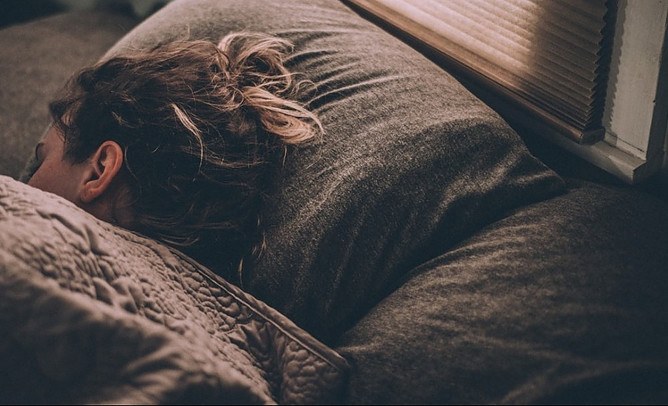In this article, we will be exploring one of the most challenging conditions those with unstable blood sugar levels experience, the nighttime hypoglyceamia. Here we will be answering ‘what is nighttime hypoglycemia?’, and nighttime hypoglycemia symptoms and what causes nighttime hypoglycemia. Most importantly, the tips on how to avoid nighttime hypoglycemia is a ‘must-read’ by anyone.
What is Night Time Hypoglycemia?
Nighttime hypoglycemia, also known as nocturnal hypoglycemia is usually common amongst those people with diabetes, and especially who treat diabetes with insulin. It can be said that people with type 2 diabetes suffer from the problem of nighttime hypoglycemia mostly.
Nighttime hypoglycemia is considered in diabetes patients when the blood glucose goes down with the levels below 70 mg/dl when they sleep at night.
According to the studies carried out by researchers, nighttime hypoglycemia is the low blood glucose ‘episodes’ occur at night when the person is asleep.
Nocturnal hypoglycemia can be quite dangerous for people suffering from this disease. However, the positive aspect is that this disease condition is preventable with the help of careful planning. Early detection and treatment are vital for any person.
What we should not forget, though is that night time hypoglycemia is not occurring only in people with diabetes. It can come in front of any of us, regardless we have diabetes or not.
Let’s look at different aspects of nighttime hypoglycemia in people with diabetes and people with no identified (diabetes doctor diagnosed) diabetes.
Non-diabetic Hypoglycemia (Amongst people who don’t have diabetes)
Non-diabetic hypoglycemia is a rare condition. It happens because of low blood glucose levels amongst people who don’t suffer from a diabetic condition. The classification of non-diabetic hypoglycemia can be made in two forms, that are:
1. Reactive hypoglycemia:
It usually results when a few hours have passed after consuming the meal.
2. Fasting hypoglycemia:
It can happen due to an empty stomach (fasting) or because of a particular disease.
Glucose is recognized to be the most vital energy source for any person’s brain and body. It is gained after the consumption of what is eaten and drunk. Insulin is a hormone that helps in keeping blood glucose levels at a normal pace so the body can function easily.
The main function of insulin is to assist glucose entering human body cells which are then used for energy. When the glucose level is not appropriate, particularly when the insulin levels are high, then the person would not feel well as a result of hypoglycemia.
Tip: When the insulin levels are low, that leads to hyperglycemia, which is high blood sugar levels, which is a sign of diabetes.
Diabetic Nighttime Hypoglycemia (amongst people have diabetes)
Based on the findings from different studies, nighttime hypoglycemia is a frequent aspect among almost all the people who have type 1 diabetes, while those patients who are on intensive insulin therapy face the risk three times more in comparison with those that are on conventional treatment.
Thus, it is a fact that nighttime hypoglycemia is indeed a serious element for the well-being of patients who have diabetes. It leads to a significant concern for patient’s caregivers and family members. This is the reason why continuous research is necessary to make improvements for early detection of hypoglycemia. This can help in achieving a safe level of blood glucose (euglycemia) in people who have diabetes.
Tip: These are the early signs and symptoms of diabetes in men, and women.
What Causes Nighttime Hypoglycemia?
Certain factors create an impact on the causes of nighttime hypoglycemia.
These include:
- When there is too high, the level of basal (background) insulin.
- The physical activity or diabetes exercise
that is performed during the day can increase the levels of insulin sensitivity, and it results in nighttime hypoglycemia. It particularly happens during the first night after there is a sustained activity session. - Increasing levels of alcohol consumption can even create a high risk for nighttime hypoglycemia.
- The absence of a nighttime snack also has its adverse effect on nighttime hypoglycemia, especially when one is mainly taken.
- Missing out dinner must be avoided at all costs. This can lead to serious implications with regard to nighttime hypoglycemia.
- High levels of basal insulin can lead to a period of illness. This is indeed a serious issue and can be damaging for the people because of its impact on nighttime hypoglycemia.
Tip: Check out these 7 Things to Do When Acclimating to Heat and High Temperatures as a diabetic. Not to forget that high temperatures (fever) can cause hallucinations.
Tip: Do you know that you are more likely to experience a hypo episode while traveling, unless you follow these Tips for Air, Sea and On-Road Travel with Diabetes.
Nighttime Hypoglycemia Symptoms
Sometimes, the person may simply wake during the occurrence of nighttime hypoglycemia. However, if this does not happen, then it would be necessary to notice one or even higher amount of indications that hypoglycemia might have occurred while the person was asleep.
These signs and symptoms would include:
- Waking up and suffering from a major headache (like migraine)
- An increasing rate of sleep disturbance and remaining unprovoked
- Feeling very tired that too unusually
- Waking up and noticing bedclothes in a damp condition. Sheets would have got affected as well because of excessive sweating.
- The clammy neck is another important indication related to nighttime hypoglycemia.
It is indeed important for patients to take their symptoms seriously. Otherwise, diabetic patients suffering from hypoglycemia can experience serious complications, even deadly accidents. There is a reason because of which effort is needed to inform about hypoglycemia to the people that are trustworthy such as family members, friends, and co-workers.
The identification of the symptoms can make it easier for the people to manage the difficult situation resulting from the nighttime hypoglycemia.
Another key information that is vital to know is about glucagon injection in case if it becomes necessary.
Symptoms can vary from person to person or with time, but monitoring blood sugar levels regularly is important, especially when it gets low.
Some people don’t find themselves to recognize early symptoms associated with hypoglycemia. In case of a situation, if there is unawareness about hypoglycemia, closing assessing the lower glucose goal range becomes important.
Tip: newborn babies are prone hypoglycemic seizures when they are born to a mom had diabetes during pregnancy.
What is Meant by Nocturnal Hypoglycemia Syndrome?
It is undoubtedly much important to understand the significance of nocturnal hypoglycemia syndrome.
Some factors in this regard are:
- The disease, nocturnal hypoglycemia syndrome amongst several people can experience neurological symptoms such as strokes or even temporary ischemic attacks. Blood sugar must be checked undoubtedly during this phase.
- Nocturnal hypoglycemia can even increase the QT interval (of an ECG), associated with heart rates and the irregular heartbeats are even boosted.
- The syndrome of nocturnal hypoglycemia can be fatal for many people because it means a “dead in bed” syndrome. Under this particular syndrome, young people who are experiencing the disease of type 1 diabetes are discovered dead even though they do not demonstrate any kind of complications or show any signs of convulsion due to hypoglycaemia.
It is important to analyze the ways through which the nocturnal hypoglycemia syndrome can be combated. A critical measure in this regard is to create a high awareness of nocturnal hypoglycemia.
The food products or the best known as nutritional supplements that include caffeine, cornstarch which is not cooked correctly and bedtime snacks along with some medications have demonstrated inconsistent results. When they do work, they contribute towards hyperglycemia.
Another useful strategy is to identify those factors which increase the risk associated with nighttime hypoglycemia. These factors comprise:
Overtreatment (overdose) of basal insulin,
long periods between meals,
delayed effects related to exercise, and
higher levels of insulin sensitivity occurring overnight.
Insulin pumps can be considered as quite helpful, and their use is generally favored in managing diabetes. Though, patients must properly use them properly and accurately to increase their efficacy to avoid ‘hypos’.
Tip: This is how to differentiate a heart attack from a panic attack. Also, worth noting the difference between a panic attack and anxiety attack if you feel like stress or depression.
Tip: You should consider going ‘gluten-free’ if you experience hypoglycemia with or without diabetes. And, at all costs should avoid these diabetes food myths.
Possible Complications from Hypoglycemia during Sleep
The possible complications must be assessed resulting from hypoglycemia during sleep. When you sleep, the body energy fall. As a result, less glucose, which is surely the fuel of the body, is then pumped out of a person’s liver. This does not create problems for non-diabetic people.
However, for patients of type 1 diabetes (and type 2), the balance becomes harder to maintain because the pancreas does not have the ability in secreting insulin. This is the reason why these patients must be injected good sufficient insulin doses but not too much to maintain healthy nighttime blood glucose levels.
The risk is often there for many things to grow off balance. The example in this regard is that the injection of too much insulin or the right amount at the wrong time can even lead to lower levels of blood glucose.
The consumption of food than the usual during the day or having the evening meal or snack item at an odd time can even hurt the blood sugar levels during the night.
Even exercising more than the usual throughout the day can cause a decrease in blood glucose at night.
As noted, nighttime ‘hypos’ can lead to night sweats, restless sleep, nightmares and even severe headaches. These are some of the possible complications resulting from hypoglycemia during sleep.
These problems can be countered effectively by taking care of certain aspects. Though care is indeed very much important for the patients and much more concern is necessary while sleeping. With the help of a suitable strategy and measures, the situation can be improved considerably for many people even the ones suffering from diabetes.
Tip: Your fall risk is high with low sugar levels. Last thing you want is to have a fall and suffer from pain due to a disc bulging or disc protrusion.
How to Avoid Nighttime Hypoglycemia? (Prevention Tips)
Undoubtedly, any person needs to avoid nighttime hypoglycemia, not only those who have diabetes. The good news is though that the prevention of nighttime hypoglycemia is possible by taking some important steps that would be discussed in the following paragraphs:
1. Checking blood sugar is extremely important before going to sleep
For all those people who are diagnosed with and experiencing diabetes must monitor their blood sugar before sleep to avoid the occurrence of nighttime hypoglycemia while sleeping. In the case of blood sugar level is ‘low-side’ just before bedtime, consuming healthy snacks must be given high priority. If anyone makes use of an insulin pump, they must temporarily reduce their insulin dosage levels.
2. Monitor the signs related to ‘low’ overnight blood sugar
It is a recognizable fact that the symptoms of hypoglycemia develop when the blood sugar levels drop at a level that is below 70 (mg/dl). Some main symptoms are headache, sweating, persistent confusion and shakiness. Many people do not even feel the symptoms associated with low blood sugar. This situation is best known to be hypoglycemia unawareness.
The consultations with a good diabetes doctor is necessary to recognize nighttime hypoglycemia because many people do not even detect the symptoms associated with the disease. The consultations can indeed prove valuable for all diabetes patients, regardless of Type 1 or Type 2.
3. Dinner should not be skipped at all
You should not skip dinner at all costs because it becomes one of the major reasons for nighttime hypoglycemia to occur. The instruction usually provided to diabetic patients is that they must consume a healthy, well-balanced diabetes-friendly dinner at night every night. They must pay valuable attention to food portion sizes too.
4. Excessive Exercise must not be practiced late at night
It is mainly seen that regular exercises are recommended to many people, but strenuous exercise to improve muscle elasticity
that too right before sleep or bedtime is never advised.
A strong aspect is there for this fact as it can lead to a significant drop in blood glucose overnight. The exercises must be practiced during the day or at least in the early evening instead of doing it late evening or at night.
If you happened to do some physical activity at late evening or night and if the blood sugar level is 100 mg/dl during bedtime once the activity is completed, then the regular bedtime snack needs to be doubled to prevent any unnecessary ‘dip’ while sleeping.
5. Alcohol must be kept limited at night
The consumption of alcohol can pose a serious threat and risk for nighttime hypoglycemia. This is the reason why you should avoid regular consumption of alcohol, and why it is surely quite necessary. Even, when there are special occasions, alcohol must be consumed in moderation rather than drinking in large quantities.
The most obligatory aspect is that alcohol must be avoided before going to bed. This can help in minimizing the chance associated with low blood sugar levels.
6. Good Preparation is necessary
After all, the best option is to remain prepared for the situations, such as having low blood sugar levels. If any person especially the one suffering from diabetes frequently wakes up because of symptoms related to low blood sugar, then they need to have products such as soda or some juice near their bed.
This can offer them immediate relief from the problem that they would experience that too without going out of their bed. However, another critical factor is that if low blood sugar at night is a common problem for them, then they need to consult their specialized doctors. The reason is, in that case, the doctor could make changes to the diabetes treatment plan that can then help you to control the nighttime glucose levels better.
It can be said in the end that nighttime hypoglycemia is a severe illness, especially for diabetic patients. However, the good news for many people is that it can be controlled by taking care and having awareness about the disease. This can make the situation quite better for many people, and they can spend a good life as a result of remaining careful and not indulging themselves in any negligence.
However, all above tips can prove to be useful not just for individual with diabetes or prediabetes, but for a more significant number of people and they can further spread positivity among many other people in the short-run and long-run as well.
Tip: Here are the 10 Best Glucose Monitoring Devices.
Tip: While essential oils can be beneficial, you should not take krill oil without doctors’ advice, if you have hypoglycemia or take any tablets to manage you blood sugar levels.






